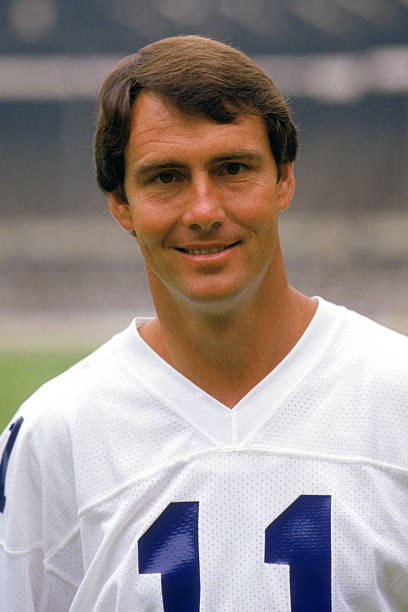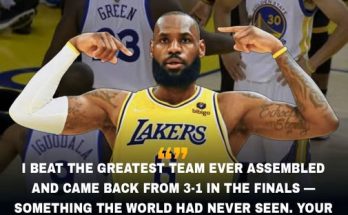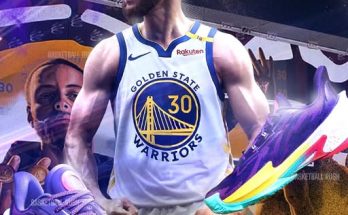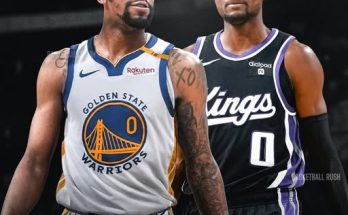When Danny White took over as quarterback of the Dallas Cowboys in 1980, he wasn’t just stepping into a new role. He was stepping into a shadow — one cast by a towering icon named Roger Staubach. Captain America. Super Bowl champion. Future Hall of Famer. Staubach wasn’t just a player; he was a symbol of excellence, courage, and leadership. How do you replace a man like that? How do you live up to a legacy that defined an era?
Simple: you don’t try to replace him. You just step up, go to work, and give your team everything you’ve got. And for Danny White, that’s exactly what he did.
Before he was QB1, Danny White was the punter. Not the backup quarterback. Not a sideline presence. A punter. For years, he quietly contributed, never demanding the spotlight, never asking for anything more than the chance to help his team. He was a do-it-all player. A worker. A man content to wait for his moment — and when that moment finally came, he was ready.
From 1980 to 1982, Danny White led the Cowboys to three consecutive NFC Championship Games. He commanded the offense, threw touchdown passes, absorbed punishing hits, and orchestrated stunning comebacks. He did all of this under the crushing weight of expectation — the impossible task of replacing a legend.
And he never flinched.
In an era when the Cowboys were expected to contend for a championship every year, Danny White consistently kept them in the conversation. His stats were impressive: 62 wins as a starter — more than Staubach had in his first six seasons. Over 21,000 passing yards. 155 total touchdowns. Multiple playoff runs. But to many, it still wasn’t enough.
Why? Because he didn’t win the Super Bowl.
It’s a cruel and narrow standard, but it’s one that’s haunted quarterbacks for generations. In a league obsessed with rings, the ones who fall short are too often cast aside. Overlooked. Undervalued. That was the story of Danny White’s career. For all he accomplished, the narrative always circled back to what he didn’t do — win the big one.
But real Cowboys fans — the ones who watched every game, who saw every comeback, who felt every crushing hit — they know better.
They know Danny White was a warrior.
He wasn’t flashy. He wasn’t a media darling. He didn’t chase personal accolades or make excuses. He just showed up, put on the helmet, and gave the Cowboys everything he had. Every single week. Through injuries. Through media criticism. Through the pressure of trying to live up to Staubach. Danny White stood tall.
There’s a toughness to his legacy that can’t be measured in trophies. A grit that doesn’t show up in highlight reels. But it was there — in every fourth-quarter drive, in every gutsy throw, in every postgame interview where he shouldered the blame and praised his teammates.
He led the Cowboys to the brink of greatness more than once. In 1980, he brought them to the NFC title game against the Eagles. In 1981, he took them to the classic clash with the 49ers — the one where “The Catch” by Dwight Clark snatched victory from Dallas in heartbreaking fashion. In 1982, he brought them back again, falling just short against Washington. Three years. Three title games. One relentless quarterback.
And still, they said he wasn’t enough.
What they didn’t see was the leadership behind the scenes. The way he mentored young players. The way he stabilized a team in transition. The way he absorbed blame in public and gave credit in private. The way he played hurt — not because it was heroic, but because it was necessary.
Danny White was never about the spotlight. He was about the job.
When his time in Dallas ended, he didn’t disappear. He went into coaching. Into mentoring. Into giving back to the game and the community that shaped him. He never demanded recognition. He just kept doing the work. And through it all, he remained what he had always been — a Cowboy to his core.
There’s something poetic about his story. A man who followed a legend, carried the weight of expectation, endured the critics, and still walked away with his head held high. Maybe he didn’t get the Super Bowl ring as a starter. But if that’s the only measure of greatness, then we’ve lost the soul of what this game is about.
Because football isn’t just about championships. It’s about resilience. It’s about sacrifice. It’s about leadership under fire. It’s about suiting up when the odds are against you and giving your team a fighting chance. Danny White did all of that — and more.
He may not be in the Hall of Fame, but he’s in the hearts of true Cowboys fans. The ones who remember his comebacks. His toughness. His class. The ones who know that legends aren’t just born — they’re forged in the fire of adversity.
And make no mistake: Danny White was forged in fire.
He took over for a legend and never ran from the shadow. He carved out his own legacy. One built not on hype, but on heart. Not on praise, but on perseverance. He was the steady hand after the storm. The bridge between dynasties. The man who kept the Cowboys competitive when so many expected them to collapse.
In the decades since his playing days, fans have begun to look back with new eyes. To see the value of what Danny White brought to the franchise. To appreciate the quiet strength, the unwavering commitment, the courage it took to be the man who came after the man.
He was never Roger Staubach. He was never supposed to be.
He was Danny White.
And for those who truly understand the game — and the unique pressures of playing quarterback for the Dallas Cowboys — that’s more than enough.
So let the critics talk. Let the ring counters dismiss him. The real story of Danny White isn’t written in jewelry. It’s written in blood, sweat, and loyalty. It’s etched in the hearts of his teammates. In the memories of fans who watched him battle every Sunday. In the legacy of toughness he left behind.
He may have followed a legend. But in doing so, he became one too.
Forever respected. Forever underappreciated.
Forever a Cowboy.



